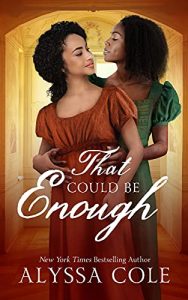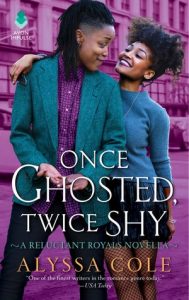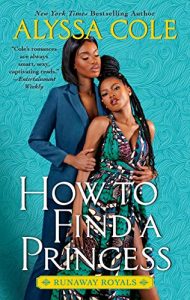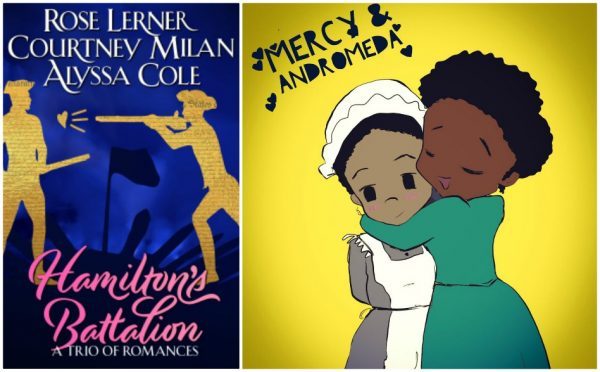Caroline’s Heart by Austin Chant
I read Caroline’s Heart by Austin Chant for the first time this month and it blew my mind. It’s a queer trans historical western fantasy novella and it’s just so GOOD. I don’t read a lot of fantasy and I don’t read a lot of westerns, but I love a queer historical, so I jumped in with both feet. I don’t want to give too much away, but it follows a bi trans witch who’s trying to resurrect her lost lover and the bi trans cowboy who has her lover’s heart in his chest. And then, they fall in love. The stakes are so high, the world building is so precise, and the romance is so addictive. It’s tender and raw and absolutely electrifying. It’s the perfect Pride read for historical and fantasy lovers alike!
Representation: bi trans heroine, bi trans hero, bi trans author
Content warnings: death of a loved one, blood, violence
Can’t Escape Love by Alyssa Cole
Alyssa Cole writes the most dynamic, diverse, relatable romance worlds and this little novella is no different. The fourth in her Reluctant Royals series, this novella follows Reggie, the badass CEO of the nerdy girl media empire Girls with Glasses and the video creator she used to have an internet crush on. When Reggie’s insomnia has made it impossible for her to keep working, she turns desperately to Gus, whose puzzling livestreams are the only thing that ever soothed her enough to fall asleep. And then, they fall in love. Reggie never actually names her identity on page, but she’s polysexual of some kind. She is also a wheelchair user. Both Reggie and Gus are neurodivergent and the way their brains work together is so lovely. These two understand each other better than anyone else does and they make something so beautiful together. The book is sexy and smart and nerdy and hilarious and absolutely delightful. Alyssa Cole is always a must-read, but this novella is EXCELLENT, and perfect for the second half of your Pride TBR.
Representation: queer, neurodivergent, wheelchair using Black heroine, neurodivergent, Vietnamese-American hero, queer, neurodivergent, Black author
Content warnings: roofies (off-page, mentioned), discussion of hospital stays
Wherever is Your Heart by Anita Kelly
Anita Kelly has given us a gift for us in the Moonies series, a series of novellas that center around a queer karaoke bar. This one, the third and final in the series, is sapphic and is my favorite of the lot. It’s a soft novella about blue collar soft butch lesbians in their late 40s, early 50s who are ready to settle down and fall in love and I love it with everything that I am. And then, they fall in love. I don’t really know how to describe it, but this book is about soft butches but it also feels like it IS a soft butch? Like it’s an embodiment of soft butchness in book form. It’s so tender and gentle and beautiful. The book takes place during Pride at a karaoke bar so now’s the perfect time to read it! My predominant feeling when reading an Anita Kelly book is warmth—I feel warm and safe and seen and celebrated, and what more could you want from Pride?
Representation: middle aged, plus sized, butch lesbian heroines, chronic pain, nonbinary author
Content warnings: Drunk driving, alcoholism, death of parent, weed
Sometimes, in my life existing as a twenty-something butchish queer disabled woman and experiencing different aspects of my community online and in the world, I worry that I am not cool and hip and irreverent enough. And sometimes, this makes me feel not only like I’m not connected to my community but that I have no business calling it my community. But all three of these books never fail to remind me that queer people are also silly and awkward and quiet (I’m not quiet) and soft and nerdy and dramatic and complicated, and that there is not one acceptable way to be queer.
You can read more of Kelleen’s reviews on her bookstagram (@booms.books) and on Goodreads.







